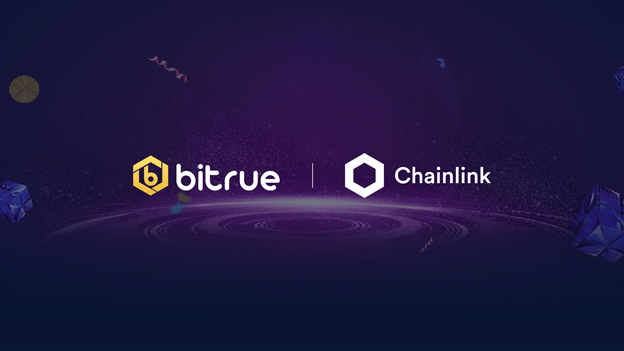Singapore-based cryptocurrency exchange Bitrue has announced that its daily XRP Raffle lottery will now be secured by Chainlink’s verifiable randomness function (VRF). The tool will be used to select the lottery’s string of winning numbers.
Bitrue’s XRP Raffle Made Even More Secure
Starting from this week, Bitrue exchange’s daily XRP Raffle will become more reliable through the use of Chainlink’s verifiable randomness function (VRF). The top decentralized oracle provider will help Bitrue determine each of the lottery’s winning numbers.
Bitrue is a prominent cryptocurrency exchange and crypto finance platform with a focus on serving Ripple’s XRP community. It is currently the second top exchange behind only Binance by XRP transaction volume. In addition to multiple XRP-denominated market-pairs, one of the tools that Bitrue offers to its XRP-inclined customers is the daily XRP Raffle. The lottery involves participants paying 2 XRP and attempting to guess the following day’s winning draw.
There are four tiers of payouts that participants can hope to secure. The highest prize of 60,000 XRP belongs to those who correctly guess all five numbers in the sequence. Those who anticipate the first four numbers will take home 1,000 XRP each. Finally, the correct calls of the first three numbers and the last number in the winning ticket will be rewarded with 200 and 12 XRP respectively.
As in any genuine lottery, the sequence of numbers in the winning ticket is supposed to be produced in an unbiased way such that someone cannot guess the winning number in advance with the probability higher than chance. Such randomness is often difficult to ensure without specialized equipment. However, Chainlink offers a cheaper and more trustworthy decentralized alternative.
Using Oracles to Generate Reliable Randomness
Chainlink is an Ethereum-powered network of decentralized oracles. Oracles are entities that supply on-chain smart contracts with information generated off-chain or by other smart contracts in a reliable way. Chainlink makes multiple independent providers compete to provide this service. Any oracle provider can participate by staking the platform’s native LINK token to ensure the punishment for inappropriate behavior.
Chainlink’s verifiable randomness function (VRF) is a natural extension of its core decentralized oracle functionality. In VRF’s case, oracles provide smart contracts with random numbers.
The process of generating a random number through Chainlink starts with the application requiring randomness (requestor) submitting to Chainlink a special number called “seed” and the public address of the oracle that it has chosen. That number should be inaccessible and unpredictable for anyone, except the assigned oracle. The oracle takes the requestor’s seed and applies a complex mathematical procedure to it to generate the random number. In the final step, Chainlink’s on-chain VRF smart contract verifies that the oracle actually followed the procedure and, if it did, sends the number to the requestor. This process ensures that the randomness-generating oracle cannot manipulate the number in some way that could be exploited.
Chainlink’s VRF is already used by a number of high-profile decentralized applications, including the no-loss PoolTogether savings lottery on Ethereum. It is thus not surprising that Bitrue has turned to this solution for generating the winning tickets for its lottery.
Disclaimer: The information presented here does not constitute investment advice or an offer to invest. The statements, views, and opinions expressed in this article are solely those of the author/company and do not represent those of Bitcoinist. We strongly advise our readers to DYOR before investing in any cryptocurrency, blockchain project, or ICO, particularly those that guarantee profits. Furthermore, Bitcoinist does not guarantee or imply that the cryptocurrencies or projects published are legal in any specific reader’s location. It is the reader’s responsibility to know the laws regarding cryptocurrencies and ICOs in his or her country.
